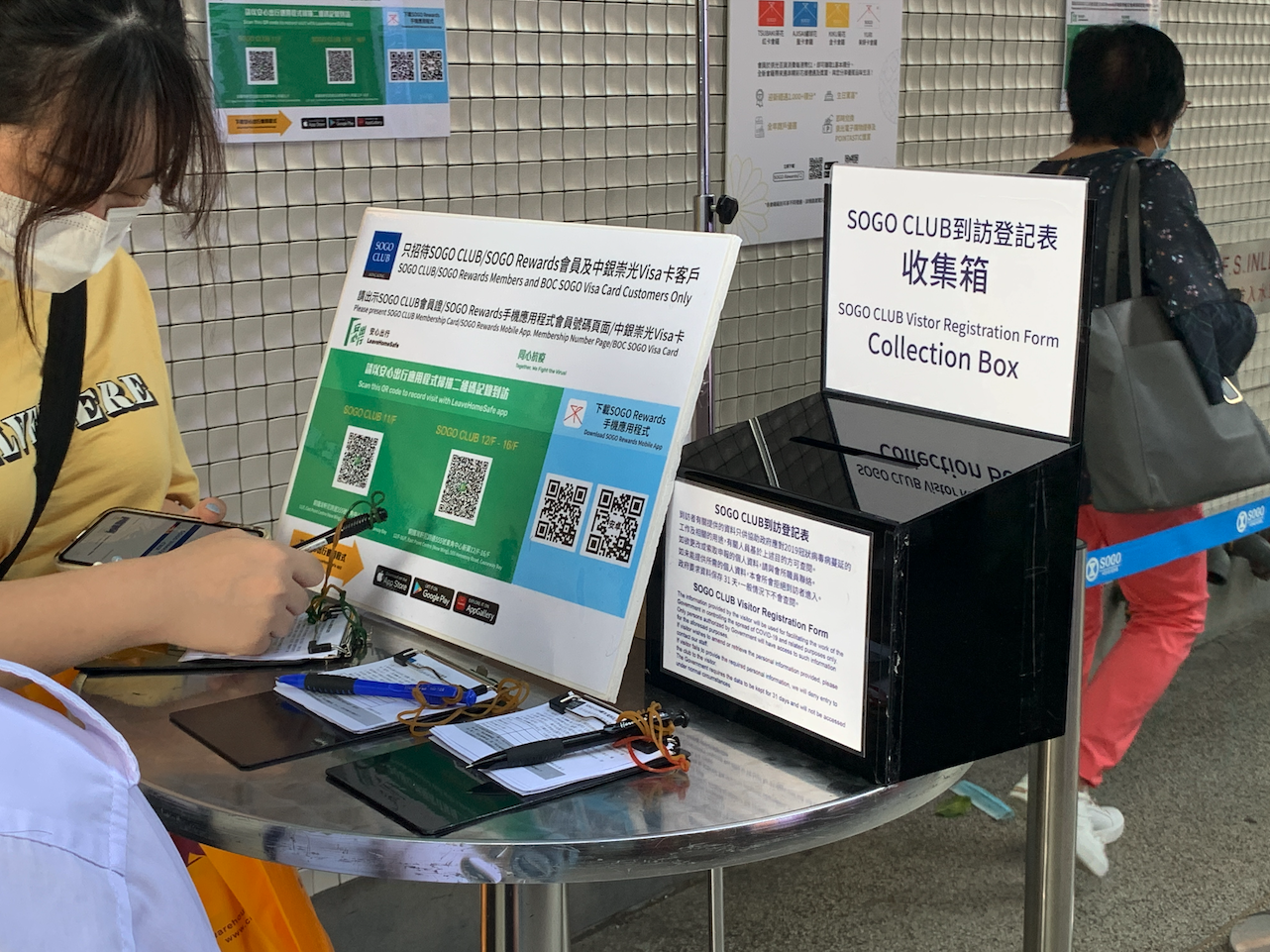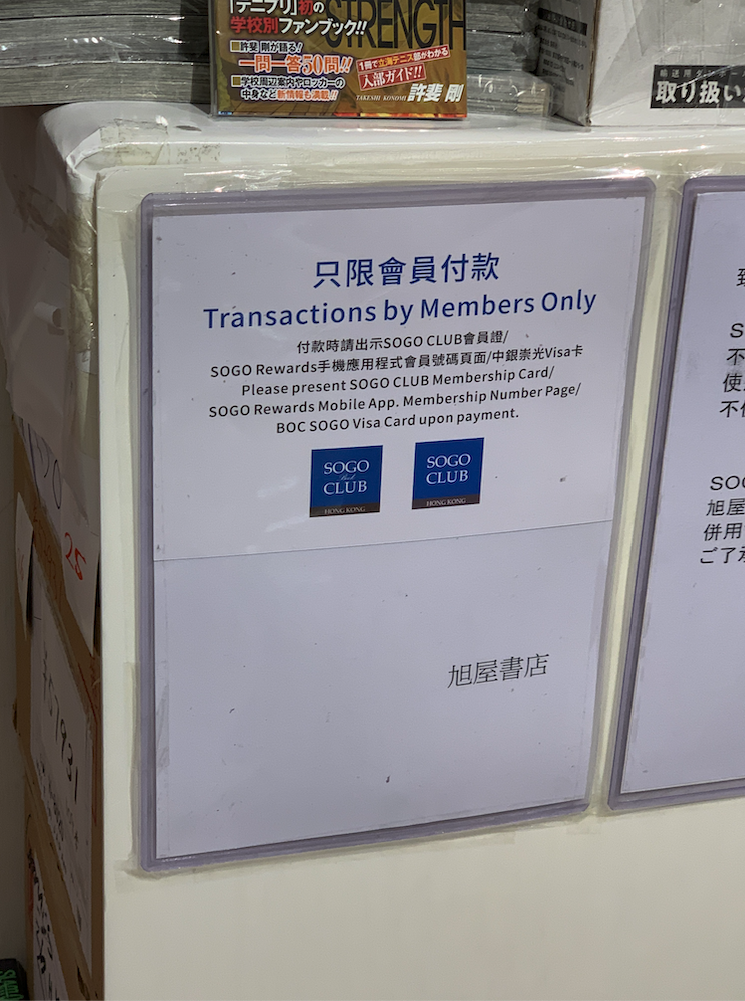SOGO in Causeway Bay is suspected of exploiting a legal loophole by registering a club license for its 11th to 16th floors, while the ‘members only’ policy required by the license had not been followed for years, FactWire finds.
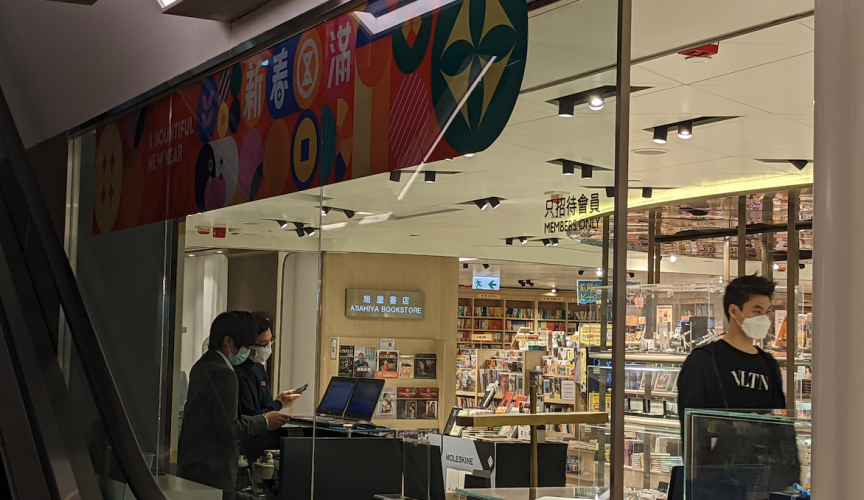
SOGO in Causeway Bay is suspected of exploiting a legal loophole by registering a club license for its 11th to 16th floors, while the ‘members only’ policy required by the license had not been followed for years, FactWire finds.
The 12th to 16th floors of the same building are designated as an office area in official documents, while in practice, they have been used as a shopping mall. This entailed an unauthorised change in property use. (See details in another story.)
Currently, the department store’s 11th floor consists of a bookstore and a cafeteria; the 12th floor sells tableware and gifts; the 13th floor sells home appliances; the 14th to 15th floors comprise beauty salons; the 16th floor is a fair centre.
Records from the Home Affairs Department show that the 11th floor is licensed as ‘SOGO BOOK CLUB’ while the 12th to 16th floors are licensed as ‘SOGO CLUB’. Both clubs were applied with a Certificate of Compliance, regulated by the Clubs (Safety of Premises) Ordinance.
According to the Ordinance, a ‘club’ provides services for its members (whether or not for the purpose of gain), and has a club-house of which only its members and their accompanied guests have a right of use.
SOGO’s official website says that SOGO CLUB began its trial operation on December 10, 2004, following the building’s renovation that year. Lifestyle International Holdings Limited (1212.HK), the company which holds SOGO, also stated in its Annual Report in 2004 that the 55,000-square-feet SOGO CLUB was designated to serve its members.
However, based on FactWire’s observation in the past six months, people were able to freely enter and shop on the 11th to 16th floors as though it were an ordinary shopping mall. Although signs that read ‘members only’ were posted at the escalator or lift entrances on these particular floors, store staff told FactWire’s reporters that membership was not compulsory and was ‘only for saving reward points’.
Only two days after FactWire sent an inquiry to Lifestyle International did SOGO begin requiring visitors to show a membership card or to apply for one immediately.
In 2002, the Home Affairs Department responded to the Legislative Council that the Office of the Licensing Authority would visit all licensed clubs at least twice a year to check whether their building and fire safety facilities were well-maintained. Clubs that pass the checks may renew their Certificates of Compliance. For clubs that do not pass, the Office would issue a warning letter and cancel or refuse to renew their Certificate of Compliance if the situation showed no improvement. The Office would also conduct checks at certain club-houses if any complaint was received.
The Home Affairs Department told FactWire that the Office had not found any violations of the regulations during its checks at SOGO BOOK CLUB and SOGO CLUB, adding that no complaint concerning the two clubs had been received in the past two years.
License conditions listed that only members and their accompanied guests have the right to use the club-houses of SOGO BOOK CLUB and SOGO CLUB, according to the Department. It also required the clubs to place a notice writing ‘members only’ in Chinese and English at an obvious position at the entrance.
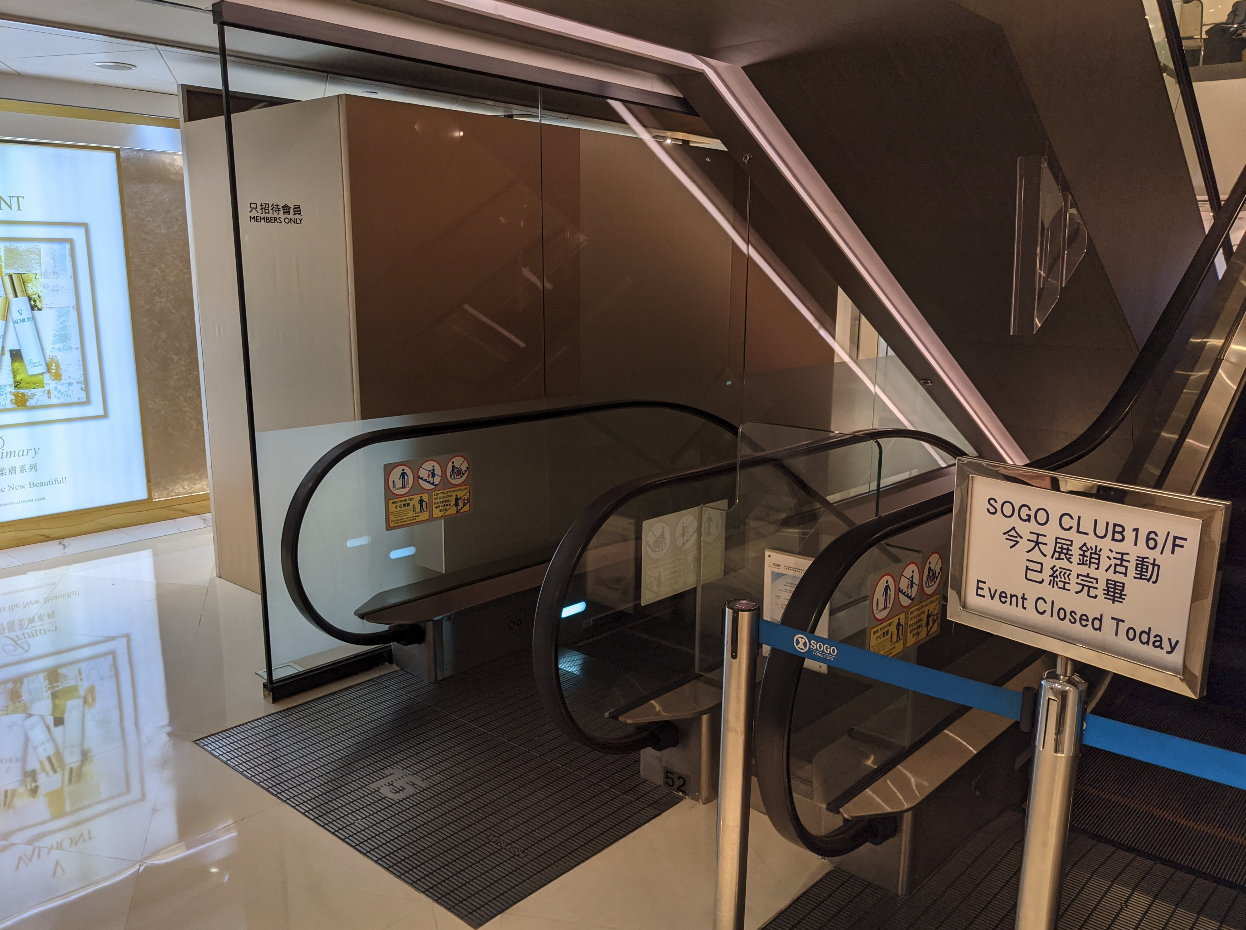
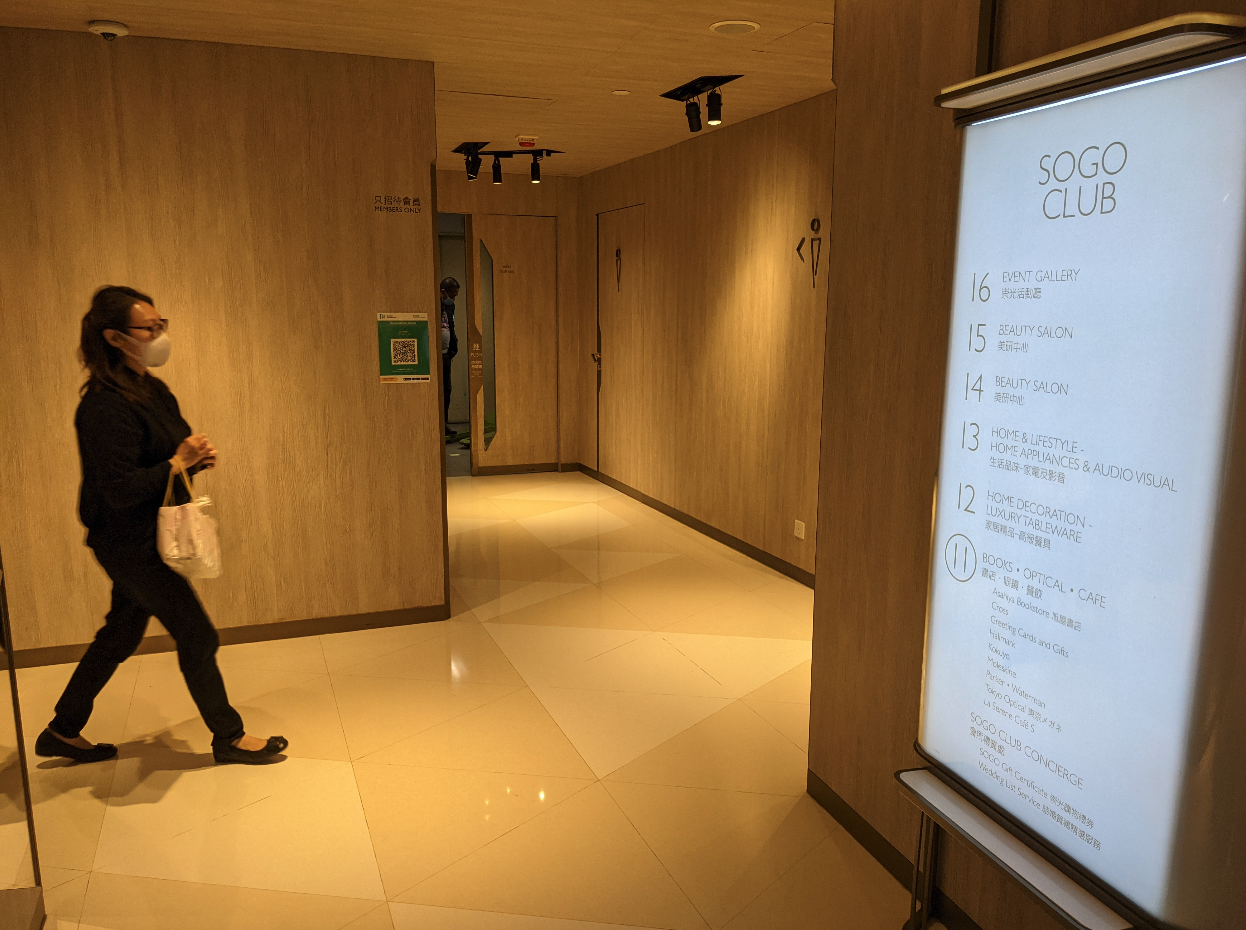
In the Home Affairs Department’s opinion, opening certain floors to the public for commercial use may not be seen as a violation against the Clubs (Safety of Premises) Ordinance. It depends on the actual case of operation.
A cafeteria on the 11th floor provides cooked food yet does not own a restaurant license. Under the Food Business Regulation, clubs providing catering facilities for the exclusive use of their members and accompanied guests are exempted from obtaining a restaurant license. That being said, FactWire’s reporters were able to enjoy the food there without registering as SOGO BOOK CLUB members.
The Food and Environmental Hygiene Department is in charge of inspecting such clubs with catering services once every month. If any club’s hygiene and food safety is not found to be up to standard, the Department may issue a warning or take legal actions according to the Public Health and Municipal Services Ordinance.
The Food and Environmental Hygiene Department said it conducted a check both on April 27 and on the day after receiving FactWire’s enquiry regarding the cafeteria on SOGO’s 11th floor. During these visits, the cafeteria was not found providing meals to non-members or customers not accompanied by any member
In the case where a club is found providing catering services to the public, it may be prosecuted for operating an unlicensed restaurant. Offenders are liable on conviction to a fine of HKD 50,000 and to imprisonment for six months at maximum.
In terms of tax, the Inland Revenue Ordinance states that a person who carries on a club receiving from its members not less than half of its gross receipts on revenue account is deemed not to carry on a business, meaning such person would not be chargeable in respect of the profits therefrom. In other words, If SOGO CLUB claims that more than half of its revenue comes from its members, it can be exempted from taxation in respect to its profits.
Solicitor Bruce Liu Sing-lee views this as a legal loophole ‘creating an excuse for people to avoid paying relevant taxes for their businesses’, he said, ‘an office is a place for work, not a club-house.’
Lifestyle International did not answer any of the questions posed by FactWire on May 17, including whether it had applied to alter property use of the 11th to 16th floors, why the public was allowed to shop in its club, and whether warnings had previously been issued by the government.
It only told FactWire on May 18 that the concerned storeys had already obtained a club license in 2005, and that it would ensure its daily operation abides by the law by strengthening internal training and issuing relevant guidelines regularly. (Editor’s note: the year of obtaining the license is 2004 according to the Home Affairs Department.)
When asked in addition about whether SOGO had applied for tax exemption using its club licenses, Lifestyle International had no more comment to make
FactWire noticed that SOGO has recently changed its practice, stressing that only members are welcome to enter the 11th to 16th floors. A security guard asked visitors to apply for a temporary membership card right away ‘for convenience’, although that card cannot be used for shopping discounts.
To apply for a temporary membership card, applicants have to fill in their name, contact number and email address. That being said, FactWire’s reporters attempted to provide only a name and were still able to obtain the card successfully. A new card can be applied each time one visits the site.
‘[The government] requires us to follow the club system,’ said the security guard, telling FactWire’s reporters that such practice had never existed until May 19 of this year.
